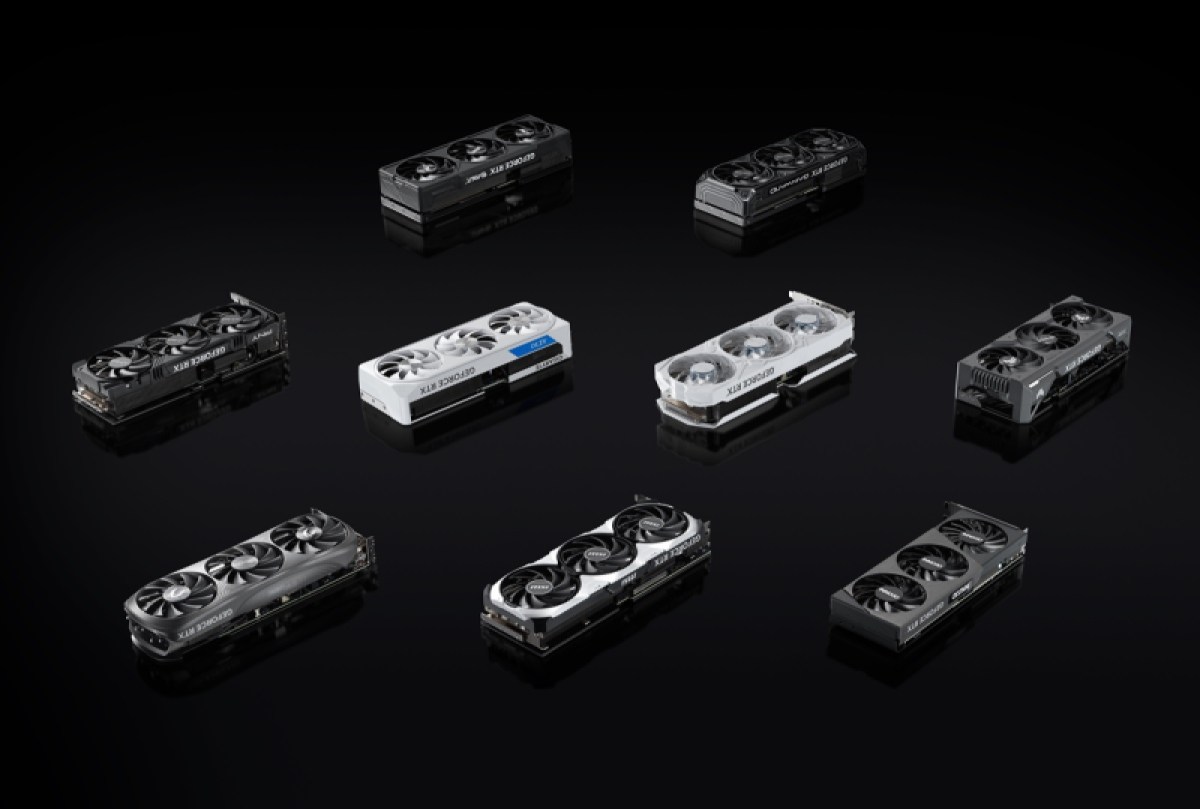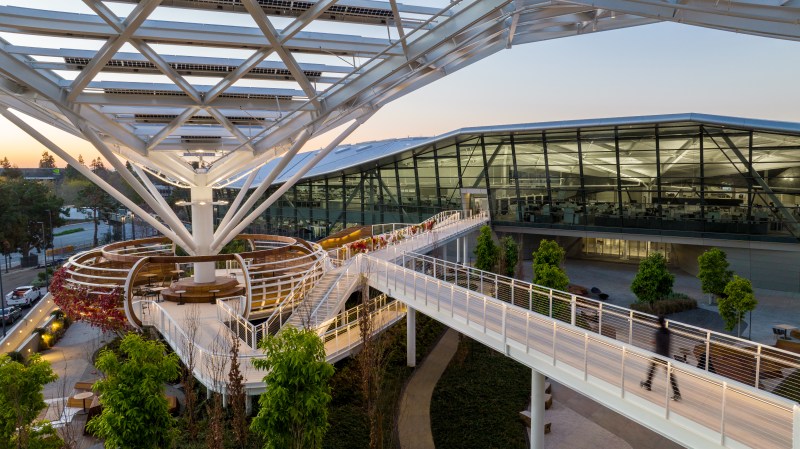Yesterday, Nvidia reported $22.1 billion in revenue for its fourth fiscal quarter of fiscal 2024 (ending January 31, 2024), easily topping Wall Street’s expectations. The revenues grew 265% from a year ago, thanks to the explosive growth of generative AI.
That’s not bad for a company that started by three engineers in a Denny’s restaurant in San Jose, California, back in 1993.
I wrote the first story on Nvidia back in 1996, when the company was pitching its graphics chips as “Windows accelerators.” But it got started earlier with just a dream, shared by Huang, Chris Malachowsky and Curtis Priem. Today, the company’s market value is over $1.667 trillion, making it one of the top five tech companies alongside Microsoft, Apple, Amazon and Google.
I had a short five-minute interview with Jensen Huang, CEO of Nvidia, after the company reported its earnings. During the earnings call with analysts, Huang talked about the trends that have carried the company forward.
VB Event
The AI Impact Tour – NYC
We’ll be in New York on February 29 in partnership with Microsoft to discuss how to balance risks and rewards of AI applications. Request an invite to the exclusive event below.
“There’s just no reason to update with more CPUs when you can fundamentally and dramatically enhance its throughput” through GPUs, Huang said. He said you can accelerate computing with GPUs, improve the energy efficiency, and dramatically improve costs, he said.
“That speed is so incredible that we enabled a second industry wide transition called generative AI,” Huang said. “Remember generative AI is a new application enabling a new way of doing software, with new types of software being created. It is a new way of computing. You can’t do generative AI on traditional general purpose computing. You have to accelerate it.”
He also repeated a notion about “sovereign AI.” This means that countries are protecting the data of their users and companies are protecting data of employees through “sovereign AI,” where the large-language models are contained within the borders of the country or the company for safety purposes.
“We now have a new type of data center that is about AI generation, an AI generation factory. And you’ve heard me describe it as AI factories,” Huang said. “Basically, it takes raw material which is data, transforms it with these AI supercomputers and Nvidia builds and it turns them into incredibly valuable tokens. These tokens are what people experience on the amazing” GenAI platforms like Midjourney.
We talked about sovereign AI, the game industry layoffs, the Intel Foundry business and the opportunity in China.
Here’s an edited transcript of our interview.

VentureBeat: I wonder about with the sovereign AI. Like, if if we have secure computing around the world, I wonder why AI data centers have to be territorial, like in every country?
Huang: Good question. And the reason for that is because of the people are starting to realize that the raw material, generative AI, the raw material of AI is data. The data belongs to them. And it is in their sovereign possession.
There’s no reason to let somebody else come and scrape your internet, take your history, your data. And a lot of it is still locked up in libraries. In our case, it’s Library of Congress. In other cases, national libraries. And they’re digitized, but they haven’t been put on the internet.
And so people are starting to realize that they had to use their own data to create their own AI, and transform their raw material into something of value for their own country, by their own country. And so you’re going to see a lot. Almost every country will do this. And they’re going to build the infrastructure. Of course, the infrastructure is hardware. But they don’t want to export their data using AI.
VentureBeat: Interesting. If you look at the two different businesses — AI on one hand is going so strong, and the gaming business is good for you guys, but it had such a tough year last year. I wonder if you see any explanation for that contrast? There were 10,000-plus layoffs in gaming last year and 6,000 so far already this year.
Huang: You know, I don’t know what is driving that. But I do know that our gaming business grew almost 20%. Our gaming business grew. I do think that that gaming needs to be reinvented. And one of the areas that we really believe needs to be reinvented is to add AI to gaming.
And one of the one of the areas that you’ve seen us do innovation is this thing called ACE, our Avatar Cloud Engine. With the combination of small language models — which are distilled from large language models — and digital avatars, we’re going have really interesting characters that are able to embody the history, the context of the stories, and practically be able to interact with us. They will have vision, they’ll be able to see each other, they’ll be able to see us, and they’ll be able to interact with us.
Their motion will be animated and completely generated by AI. Very natural. And I do believe that both the content will become better on the one hand more interesting. On the other hand, it will be cheaper to produce. Multi language, audio generation, text generation.
Of course, the animation of characters will be completely done by AI. The animation of the faces will be completely done by AI. The generation of textures will be completely done by AI. And so the cost of producing these games will really decline significantly over the next several years. And the content quality, I hope, will go up.

VentureBeat: Intel had this big event for the foundry business today. I wonder if you’re expecting to make use of the Intel Foundry.
Huang: We’re open minded about it. We keep evaluating it. We don’t have any current plans. But I’m very open minded about it. We use [manufacturers] TSMC and Samsung. TSMC is just so good. They’re advanced, they’re agile, they’re cost effective. They can scale, they’re everywhere, and so I think the competition is very, very high. But we’re also very open minded. So we work very closely with Samsung and Huawei. We’re open to working.

VentureBeat: Huang said that the U.S. government wants to constrain shipments of devices for the Chinese market. Nvidia paused its shipments and reconfigured products so that they would not be software-hackable and that took some time. Now the company is sampling chips to China again, within the restrictions of the government.
I asked if the China market is coming back and if Nvidia sees eye-to-eye with the U.S. government on what is OK to ship into China.
Huang: Yeah, we absolutely see eye to eye with with the U.S. government. Fundamentally, what the U.S. government wants to do is limit access of the latest technology to China. But they would still like us, an innovative American company, to succeed globally. Absolutely and global. And so, between these two limitations, these two pillars, we’re going to go and offer the best products we can, fully in compliance with the regulations and then go serve the market as best we can. Generative AI demand is as great in China as it is anywhere else. And so I think the demand is certainly there. We just have to make sure that we paused to comply with the regulations, come up with new products, and then we’ll go back and do the best we can.
VentureBeat’s mission is to be a digital town square for technical decision-makers to gain knowledge about transformative enterprise technology and transact. Discover our Briefings.

